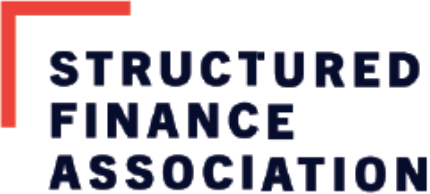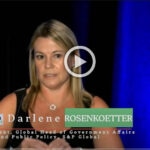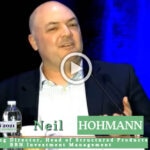
ESG Disclosure Initiative
$11.6 trillion – or $1 of every $4 invested in the United States – was invested under ESG investment strategies.

Overview
SFA and its Members are Developing an ESG Framework and Reporting Standards specific to Structured Finance.
This year SFA welcomed members to the ESG Disclosures Taskforce. The members represent every role in securitization—issuers, investors, servicers, data services—to consider the environmental, social and governance impacts that are material and relevant to structured finance.
To participate in this important and timely work, please use the ‘Join Today’ button on the right of the screen.
Learn More
Background
Environmental, Social and Corporate Governance, or ESG, investing has now hit the mainstream as a consideration – and increasingly a key driver – of investment approaches and analysis for individuals and institutions alike. ESG investing has its roots in what began as ‘socially responsible’ investing in the 1960s, when investors began to screen their investment opportunities based on industry involvement such as tobacco production and sales or a company’s dealings in South Africa with respect to the apartheid regime. Today, there is broad acceptance and interest in ESG investing with the existence of targeted mutual funds, indices, and there is also a growing focus on data availability and analysis by ratings agencies and analytics firms.
ESG Factors
Environmental: Climate change, Natural resources, Sustainability
Social: Diversity, Human rights, Consumer protections
Governance: Corporate governance, Corporate behavior, Compensation structure
The above categories are high level and only scratch the surface of the ESG-relevant activities that investors – and issuers – may choose to focus on.
For our part, the Structured Finance Association has very recently launched an effort to assess how ESG investing and reporting can be applied and accessed in the securitization market. As a jumping off point the Association has begun work on identifying a framework for reporting on ESG factors within the assets of ABCP vehicles at the conduit level.
SFA ESG Symposium
On December 5, 2019, SFA held an ESG Symposium that brought together nearly 200 engaged participants for a day-long conversation to promote ESG principles within the structured finance market.
SFA has published Key Takeaways from the Symposium which can be downloaded via the link below. Additionally, some of the slides that were presented by our guest speakers are available below.
Below please find slides from some of the presenters:
- ESG Investing through Indices (Reid Steadman, Managing Director, Global Head of ESG – S&P Dow Jones Indices)
- ESG and Sustainable Finance: Are we there yet? (Libby Bernick, Head of Sustainability – DBRS Morningstar)
- Moody’s ESG Framework (Swami Venkataraman, Senior Vice-President – Moody’s)
- Environmental, Social and Governance (ESG) Risk Scoring for Structured Finance (Marjan van der Weijden, Global Head of Structured Finance – Fitch Ratings)
- ESG Credit Factors in Structured Finance (Matt Mitchell, Director, Structured Finance – S&P Global Ratings), these slides are derived from this report “Environmental, Social, and Governance: ESG Credit Factors in Structured Finance”
The symposium encouraged important dialogue among a broad range of market participants and SFA looks forward to hosting additional ESG events in the future.
If you’re interested in joining SFA’s ESG Task Force, please email Jeff Gudiel at jeff.gudiel@structuredfinance.org.
Did You Know?
The Credit Ratings Subcommittee of the Fixed Income Market Structure Advisory Committee (FIMSAC), an advisory group to the SEC, is considering the role of NRSRO credit ratings in various financial markets, including the exploration of potential conflicts of interest in industry payment models. After soliciting feedback from industry participants on this topic, the FIMSAC subcommittee set forth recommendations aimed at improving both transparency and potential outcomes for investors.
SFA’s Credit Ratings Process Task Force submitted feedback to the FIMSAC regarding the oversight and regulation of NRSROs. To join our task force, please contact Alyssa.Acevedo@structuredfinance.org.
Publications & Resources
SFA ESG Disclosure Initiative Webinar: Existing ESG Frameworks and Potential Application to SF Market
April 4, 2022


“ESG issues that have financial implications are increasingly part of business decisions, and investors who embrace these changes will be the industry leaders of the future. SFA is helping to define these issues and create the right frameworks that will make ESG data more transparent for investors.”
Libby Bernick
HEAD OF SUSTAINABILITY,
DBRS MORNINGSTAR
News
SEC Ends Defense of Climate Disclosure Rules
On March 27, the Securities and Exchange Commission (SEC) voted to end its defense of legal challenges against its climate disclosure rules. The SEC’s rules would have required…
NYT: Banks Move Away From ESG
The New York Times writes that large financial institutions are slowly leaving their climate action networks, with some ESG groups receiving negative attention from Congress. The Federal…
Federal Judge Upholds ESG Investing Rule
Judge Matthew Kacsmaryk of the U.S. District Court for the Northern District of Texas, ruled in favor of the Department of Labor’s (DOL’s) 2022 rule, which allows…
GSEs, Ginnie Mae Expand Respective Social Bond Initiatives
On September 14, Ginne Mae announced the launch of a social bonds label for single-family MBS. Separately, on September 18, both Fannie Mae and Freddie Mac announced the expansion of single-family social disclosures for Super and Mega MBS pools. Read More
ESG Score Dropped from S&P’s Debt Ratings Following Investor Feedback
Bloomberg reports that on August 4, S&P announced that they would no longer publish an ESG score alongside a credit rating when rating debt instruments….





